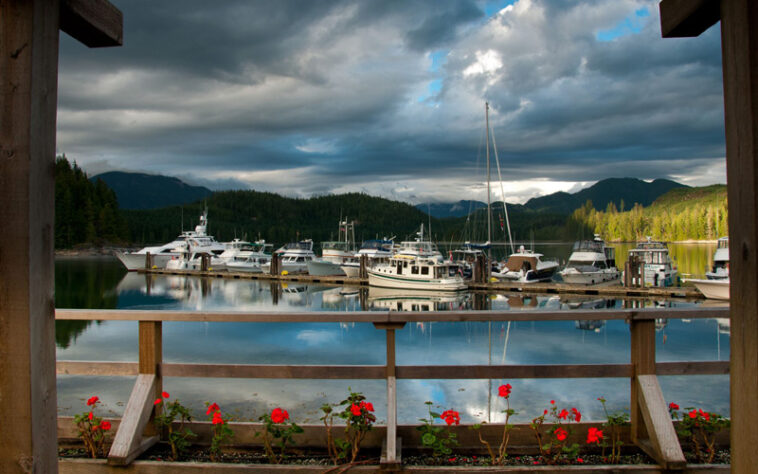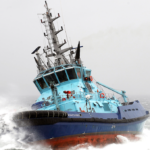
Blind Channel Resort, known for its delicious food, creative artwork, and outstanding customer service, has been owned, operated, and lived in by the Richter family since 1970, with Eliot Richter serving as its president. Credit: LinkedIn
On a remote island 35 kilometres northeast of Campbell River, researchers are hoping to harness the force of the ocean to power a resort used mostly by boaters.
“With public support, tidal energy has the potential to become a viable, clean energy solution for small communities like ours and significantly reduce our carbon footprint.”
Eliot Richter, president of Blind Channel Resort
And proponents say it could be a model for isolated communities up and down the B.C. coast, which are often forced to rely on polluting diesel to provide electricity.
“With public support, tidal energy has the potential to become a viable, clean energy solution for small communities like ours and significantly reduce our carbon footprint,” Eliot Richter, president of Blind Channel Resort, said in a recent statement.
The resort is located on West Thurlow Island, separated from Vancouver Island by the Johnstone Strait. Researchers are receiving $2 million from the B.C. government to study tidal turbines and other forms of renewable energy.
The money is specifically going to the Blind Channel Test Centre, run by the University of Victoria’s Pacific Regional Institute for Marine Energy Discovery, also known as PRIMED.
“Many remote West Coast communities rely on diesel for electricity generation, which poses a range of negative economic, social, and environmental effects.”
Toronto Star
Tidal power is energy “generated from harnessing the kinetic energy of tidal currents (“tidal stream”) and tidal height differences (“tidal barrage/lagoon”),” according to the organization Clean Energy BC.
Even though the long B.C. coastline could potentially be home to lots of tidal power projects, “many remote West Coast communities rely on diesel for electricity generation, which poses a range of negative economic, social, and environmental effects,” the Toronto Star explains.
“British Columbia’s coast is blessed with an abundance of renewable tidal power resources that can be harnessed for a clean energy future.”
PRIMED co-director Brad Buckham
But the project at the Blind Channel Test Centre could change that.

“British Columbia’s coast is blessed with an abundance of renewable tidal power resources that can be harnessed for a clean energy future,” PRIMED co-director Brad Buckham said in a statement.
He said the research on West Thurlow Island could lead to “many exciting economic, environmental and social benefits for remote, rural, and coastal communities throughout our province.”








2 Comments